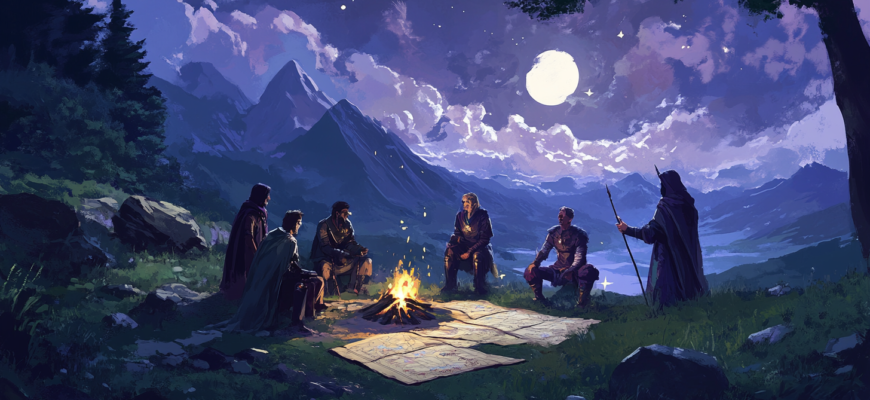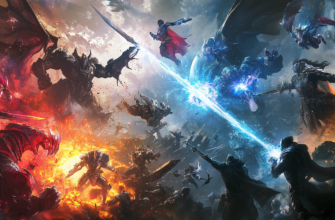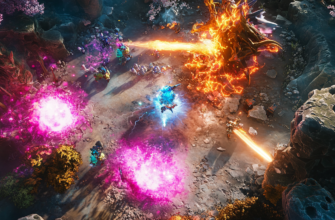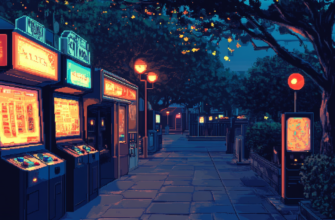- The significance of plots in RPGs explained
- Why the plot is the backbone of an RPG
- Step 1: The plot makes choices matter
- Step 2: Immersion through complex worlds and lore
- Step 3: Creating emotional connections with characters
- Step 4: Narrative-driven motivation
- Step 5: Long-lasting impact and replayability
- The balance of gameplay and story
- Conclusion: Embrace the journey and let the plot guide you
The significance of plots in RPGs explained
Hey bro, if you’re into RPGs (role-playing games) like me, you’ve probably noticed that the story, or plot, plays a massive role in your overall experience. You didn’t embark on an epic quest in games like The Witcher 3, Skyrim, or Mass Effect just to smash buttons and loot gear. No, you’re in it for the narrative. But why is the plot so important in these games? Let’s dive deep into why solid storytelling is crucial for making RPGs truly unforgettable.
Why the plot is the backbone of an RPG
While we all love mastering complicated mechanics and upgrading characters, the plot is often the thread that holds it all together. In RPGs, where choice, character progression, and world-building are vital, a strong and engaging plot enhances those elements tenfold. Mechanically, the complexity of the story often decides your approach to gameplay: What characters you meet, what quests you undertake, how you invest your skill points—everything can change based on the story.
Before breaking down why plots are immensely relevant to RPGs, let’s define some key terms for clarity:
- Plot: The sequence of events in a story. It’s what happens in the game, driving characters and actions forward.
- RPG: Role-Playing Game. In these, you typically control characters in a detailed world where your decisions affect both outcomes and progression.
Now, let’s take it step by step and see how important the plot is for immersive RPG experiences.
Step 1: The plot makes choices matter
In most RPGs, decision-making is a fundamental mechanic, and these decisions tie back to the plot. Whether it’s a simple dialogue choice or a massive branching path in the storyline, plots create the illusion that your choices carry significant weight—which is the essence of role-playing.
Take Mass Effect for example. The game’s plot revolves around intergalactic warfare, but more importantly, it’s about the relationships between species and characters. Your decisions shape who lives, who dies, and even entire galactic fates. Without a strong plot behind them, none of these decisions would feel meaningful.
Practical Tip: When diving into a new RPG, don’t skip conversations or vital story moments. The more you invest in the narrative, the more rewarding your choices become because you’ll understand the broader stakes.
Step 2: Immersion through complex worlds and lore
An immersive plot helps you connect with the world you’re playing in. Developers weave plots into environments, lore, and background stories to create worlds that feel alive. Games like Skyrim come to mind, where every corner of its massive world tells a story—whether it’s through ancient texts, ghostly ruins, or factions fighting for control.
A well-written plot allows you to get lost in the game world and feel as if you belong there. Think about it: without a compelling plot, environments would just be empty shells filled with enemies to cut down. Instead, games like The Witcher 3 breathe life into their world with detailed history and interconnected relationships. You feel like you’re part of something bigger, something meaningful.
Practical Tip: Make it a habit to explore optional content like books, notes, or side quests in RPGs. They often carry rich pieces of the main plot or help expand the world, making gameplay feel deeper and more immersive. Some of the most powerful narrative moments in titles like Fallout: New Vegas come from reading log entries or talking to random NPCs.
Step 3: Creating emotional connections with characters
Another dimension where plots shine in RPGs is character development. Good plots develop not just the overarching story but also the characters within it. Emotional connections matter in RPGs—whether you’re best friends with a sidekick or you just want to protect an NPC from harm. These feelings are crafted by stellar writing and character arcs, pulling you into the game’s world even deeper.
For instance, one of the reasons The Last of Us, although more of an action-adventure game, feels like an RPG is because of the deep emotional connection between Joel and Ellie. You care about the outcome because you’re emotionally invested. In a more traditional RPG format, games like Dragon Age work the same way—your companions have complex backstories and motivations.
Practical Tip: Try to engage with all the main and side characters. Even talking to less-important NPCs or your party members when they don’t have a quest to give can flesh out your understanding of the game’s world and its characters. You’ll often unlock special missions or bonuses by strengthening these bonds.
Step 4: Narrative-driven motivation
Ever played a game where you’re determined to see the story through because it’s that good? That is what an excellent plot in RPGs offers. Whether it’s wanting to unlock the mystery of the world around you, or save a beloved character, a gripping narrative gives you motivation to continue playing beyond the mechanics.
In contrast, if the plot is weak or underwhelming, you might lose interest quickly—even if the gameplay itself is amazing. Good plotlines keep you hooked across hours and even hundreds of hours of gameplay, without ever feeling like a grind. Baldur’s Gate 3 is a great example of how plot and gameplay interact seamlessly, so you’re always motivated to go further, do more, and discover new things.
Practical Tip: If you’re ever burned out while playing, take a moment to reflect on side quests or story beats you may have missed. Often returning to the main narrative or a gripping side-arc revives that sense of purpose in RPG-oriented gaming.
Step 5: Long-lasting impact and replayability
A great RPG plot doesn’t just end when the credits roll. In many cases, the best RPGs invite you to experience them again, gaining fresh insights on repeated playthroughs. Games such as The Witcher 3 and Fallout: New Vegas provide branching story paths that encourage multiple replays, allowing you to explore different outcomes and decision-making styles.
The beauty of a plot-driven RPG is that each playthrough can feel like a brand-new experience. A new character build, set of choices, or moral alignment causes significant shifts that make the game feel fresh, no matter how many times you’ve played it.
Practical Tip: If you finish an RPG and loved the story, don’t hesitate to replay it or make alternative choices. You might be surprised how much the plot changes, and in return, how the game feels different from the last time you played it.
The balance of gameplay and story
All right, bro, we’ve established that a strong plot is essential to any RPG, but it always has to balance with gameplay. Without engaging mechanics, the best-written plot might still fall flat. When both are done right, however, you’ve got a masterpiece. Games like Dark Souls balance rich lore and world-building with rock-solid gameplay to create an unforgettable gaming experience.
But it’s the correct mix that’s crucial—having one without the other leaves games feeling either too shallow or too complicated to enjoy. That’s why games like Persona 5 and Divinity: Original Sin 2 are such standouts in modern RPG gaming: they manage to hit the sweet spot between compelling narratives and mechanical depth.
Conclusion: Embrace the journey and let the plot guide you
The plot is far from a background element in RPGs—it’s the backbone of the amazing adventures we love. It gives meaning to our decisions, enhances immersion, deepens our connection with characters, and keeps us motivated. Whether you’re exploring rich lore or navigating emotional twists, the story is often what makes RPG gameplay shine.
Next time you fire up an RPG, give the plot the respect it deserves. Dive in, engage with the characters, and let it pull you into a world full of intrigue and adventure. That’s when RPG games get their magic. And remember: there’s no shame in replaying a great story again and again!
What are your favorite RPG plots? Drop a comment below with your stories or game suggestions, and let’s keep the conversation going!

















